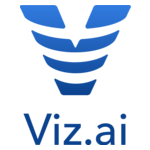New software will incorporate natural language processing (NLP) for more effective patient screening and follow-up
Viz.ai Expands into Lung Disease to Accelerate Diagnosis and Care for Patients
Media Contact
Brendi Bluitt
brendi.bluitt@finnpartners.com
Viz.ai, the leader in AI-powered disease detection and intelligent care coordination, today announced expanded lung disease software capabilities. New natural language processing (NLP) capabilities, on top of imaging AI, will extend Viz.ai’s pulmonary solutions by mining clinical insights from the electronic health record (EHR) and identifying and managing patients with lung disease. The software will be incorporated into Viz.ai’s innovative platform to accelerate and enhance the care process, reducing time to treatment and potentially improving outcomes for these patients.
“The signs and symptoms of lung disease are often subtle and easily confused with the symptoms of other common diseases, making it difficult to discern the appropriate route of care,” said Jack Manley, MD, head of New Markets & Growth at Viz.ai. “With more than 35 million people in the U.S. living with a lung disease like asthma or COPD1, and with lung cancer remaining the leading cause of cancer deaths2, Viz’s AI-powered platform has the potential to accelerate the time it takes patients to receive an accurate diagnosis – getting to the right specialist and treatment at the right time, thereby preventing life-threatening events and hospitalizations.”
Lung disease is a significant contributor to illness and death in the U.S., with chronic respiratory diseases accounting for the third leading cause of death worldwide.3 Many lung disease patients fail to receive optimal treatment due to improper identification of high-risk patients, poor care coordination, lack of treatment monitoring and escalation, high administrative barriers to therapy and more.4 Better care coordination for lung disease patients can improve outcomes by closing gaps between patient review and time to treatment.5
This expansion of Viz.ai’s pulmonary solutions, in addition to Viz Pulmonary Embolism (PE) with right ventricular strain, will leverage NLP to evaluate EHR data along with imaging AI to identify and triage patients suspected of lung disease for further follow-up and care. The new expansion will be embedded into Viz.ai’s AI-powered care acceleration platform, enabling HCPs to streamline care pathways, manage high-risk patient referrals and follow-ups, and improve overall patient outcomes. Viz.ai is working with leading research centers and patient-advocacy groups to advance its efforts to combat lung disease. Last month, Viz.ai announced its partnership with the Addario Lung Cancer Medical Institute (ALCMI), an international consortium made up of 25 of the world’s premier lung cancer research institutions, to collaborate on improving lung cancer outcomes in patients by focusing on early detection with improved clinical workflow for nodule workup through to precision medicine optimization.
About Viz.ai, Inc.
Viz.ai is the pioneer in the use of AI algorithms and machine learning to increase the speed of diagnosis and care across 1,700+ hospitals and health systems in the U.S. and Europe. The AI-powered Viz.ai OneTM is an intelligent care coordination solution that identifies more patients with a suspected disease, informs critical decisions at the point of care, and optimizes care pathways and helps improve outcomes. Backed by real-world clinical evidence, Viz.ai One delivers significant value to patients, providers, and pharmaceutical and medical device companies. For more information visit viz.ai.
1 American Lung Association. “Research” American Lung Association. Updated 2023. Available from: https://www.lung.org/research. Accessed October 18, 2024.
2 American Cancer Society. Key Statistics for Lung Cancer. American Cancer Society. https://www.cancer.org/cancer/lung-cancer/about/key-statistics.html. Accessed October 18, 2024.
3 GBD 2019 Chronic Respiratory Diseases Collaborators. Global burden of chronic respiratory diseases and risk factors, 1990-2019: an update from the Global Burden of Disease Study 2019. EClinicalMedicine. 2023;59:101936. doi:10.1016/j.eclinm.2023.101936
4 Siu DCH, Gafni-Lachter L. Addressing Barriers to Chronic Obstructive Pulmonary Disease (COPD) jCare: Three Innovative Evidence-Based Approaches: A Review. Int J Chron Obstruct Pulmon Dis. 2024;19:331-341. Published 2024 Feb 1. doi:10.2147/COPD.S426050
5 Pierucci P, Santomasi C, Ambrosino N, et al. Patient's treatment burden related to care coordination in the field of respiratory diseases. Breathe (Sheff). 2021;17(1):210006. doi:10.1183/20734735.0006-2021
View source version on businesswire.com: https://www.businesswire.com/news/home/20241021691681/en/










